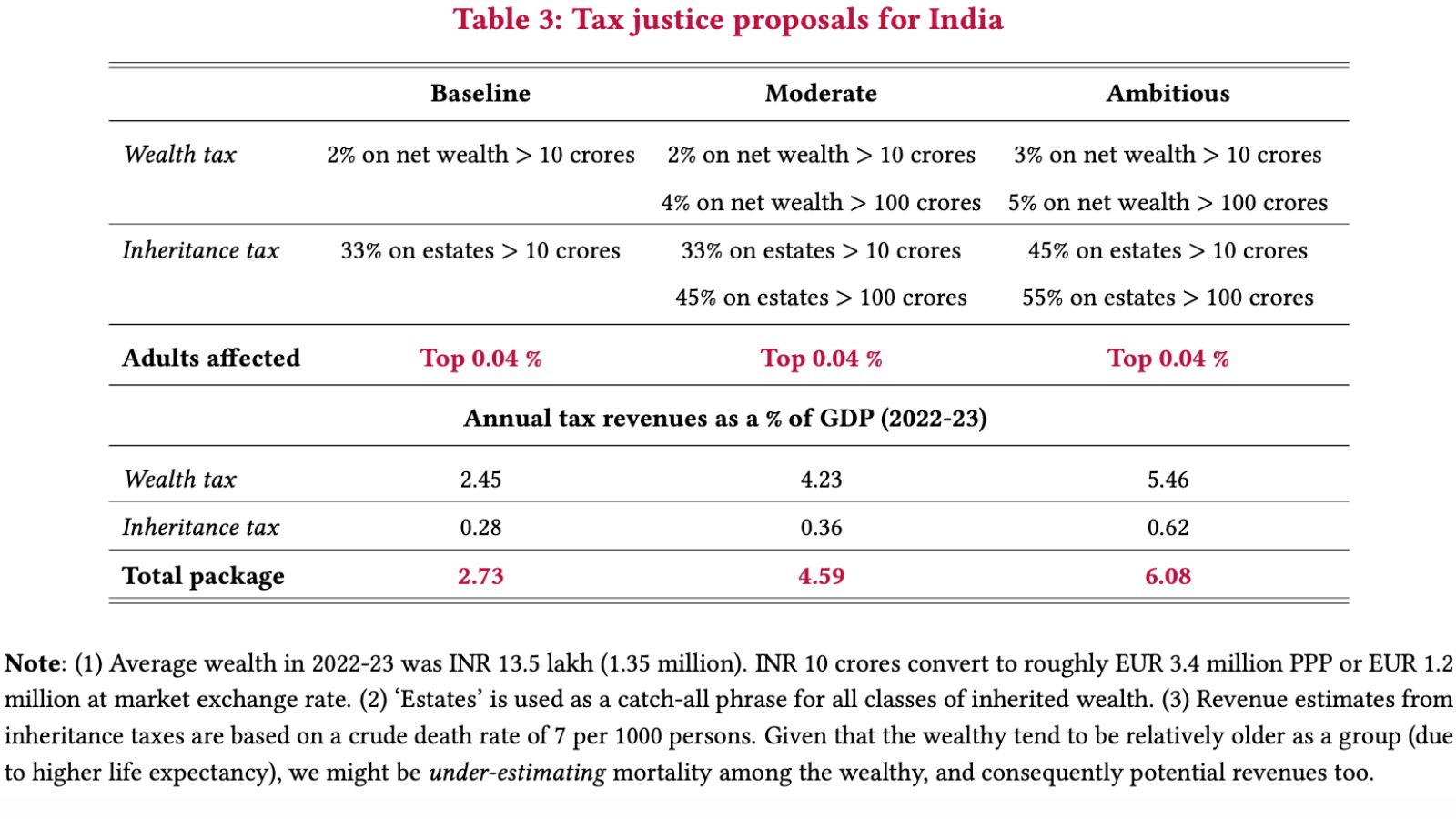A tax package for the ultra-wealthy in India including an annual wealth tax and an inheritance tax for those with net wealth exceeding Rs 10 crore accompanied by redistributive policies to support the poor, lower castes, and middle classes has been proposed by a report of the World Inequality Lab.
Economists Nitin Kumar Bharti, Lucas Chancel, Thomas Piketty, and Anmol Somanchi in a note released Friday said the tax package proposal can help tackle the massive concentration at the very top of the wealth distribution and create fiscal space for crucial social sector investments.

This note follows up on an earlier paper, co-authored by the same economists and released by World Inequality Lab in March, which had stated that India’s top 1 per cent income and wealth shares have reached historical highs and are among the very highest in the world.
The report proposes an annual wealth tax and an inheritance tax for those with net wealth exceeding Rs 10 crore, equivalent to the top 0.04 per cent of the adult population (~370,000 adults), who currently hold over a quarter of the total wealth.
It suggests raising phenomenally large tax revenues while leaving 99.96 per cent of the adults unaffected by the tax. Outlining a baseline scenario, the report said, a 2 per cent annual tax on net wealth exceeding Rs 10 crore and a 33 per cent inheritance tax on estates exceeding Rs 10 crore in valuation would generate a 2.73 per cent of Gross Domestic Product (GDP) in revenues.
“To fight these growing inequalities and create fiscal space for crucial social sector investments, we propose a tax justice package comprising an annual wealth tax and an inheritance tax. Much has been written about the possible pros and cons of such taxes and the debate must continue. Given the extreme concentration of wealth at the very top, coupled with deeply rooted caste inequities, we believe such policies would be an important step towards a more equitable growth path for India,” the report said.
An inheritance tax would directly tackle the unfair advantage that unearned dynastic wealth renders to individuals solely based on the accident of birth, which is only exacerbated by the caste system, it said. However, the report noted that since the inheritance tax comes into force when wealth is bequeathed (i.e. upon the death of the dynast), hence, it delivers relatively small tax revenues on an annual basis.
Story continues below this ad
 Tax Justice proposals for India
Tax Justice proposals for India
On the other hand, a small wealth tax would deliver significant annual revenues (given the larger base) while also dampening accumulation at the very top, it said.
The tax package needs to be accompanied by redistributive policies to support the poor, lower castes, and middle classes. The report cited an example of how the baseline scenario would allow doubling the current public spending on education, which has stagnated at 2.9 per cent of GDP over the past 15 years.
“It needs to be extensively debated, with a consensus on specific details of the design emerging from a broader democratic debate on tax justice and wealth redistribution in India,” the report said.
According to the earlier paper released by World Inequality Lab in March, India’s top 1 per cent income and wealth shares have reached historical highs and are among the very highest in the world. The paper titled “Income and Wealth Inequality in India, 1922-2023: The Rise of the Billionaire Raj” had stated that the “Billionaire Raj” headed by “India’s modern bourgeoisie” is now more unequal than the British Raj headed by the colonialist forces.
Story continues below this ad
The paper had pointed out there is evidence to suggest the Indian tax system might be “regressive when viewed from the lens of net wealth”. A restructuring of the tax code is needed, the paper had said, suggesting that a levy of a “super tax” of 2 per cent on the net wealth of 167 wealthiest families would yield 0.5 per cent of national income in revenues and create space for investments.
Recently, the debate on inheritance tax had picked up after Sam Pitroda, a former adviser to Rajiv Gandhi and an associate of Rahul Gandhi, described the inheritance tax in the United States as an “interesting law”. Prime Minister Narendra Modi had then stated that the Congress would snatch property left behind by people for their children — the party’s mantra, he said, was to “loot”, “zindagi ke saath bhi, zindagi ke baad bhi (both when you are alive and when you are dead)”.



 Tax Justice proposals for India
Tax Justice proposals for India





























